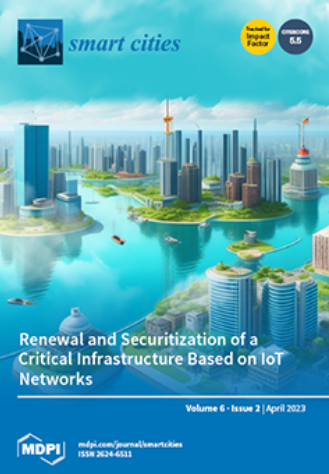直流微电网:智能城市的有利智能电网范式
IF 5.5
Q1 ENGINEERING, ELECTRICAL & ELECTRONIC
引用次数: 3
摘要
近年来,随着太阳能光伏系统、燃料电池、电池和其他选择等直流负载和直流电源变得越来越主流,人们对直流微电网的兴趣激增。随着越来越多的分布式能源(DER)被整合到现有的智能电网中,直流网络已经成为行业的前沿。直流系统完全避开了同步、无功功率控制和频率控制的需要。直流系统比以往任何时候都更加可靠和高效,因为交流系统容易出现所有这些问题。直流电有很多未实现的潜力,但也面临着一些重大挑战。保护直流系统很困难,因为电流消失的地方没有离散的位置。规划阶段还必须考虑依赖于惯性的直流微电网稳定性。直流微电网存在的问题包括电能质量不足和通信不良。本文广泛讨论了这些价值流的电能质量、惯性、通信和经济运行,以及它们的底层架构和保护方案。本文综述了并网和隔离直流微电网的优缺点。此外,本文还从配电和能源管理机构的角度比较了不同类型的微电网,例如在实施最先进的系统之前,直流微电网的规划、运行和控制必须满足的先决条件。本文章由计算机程序翻译,如有差异,请以英文原文为准。
DC Microgrids: A Propitious Smart Grid Paradigm for Smart Cities
Recent years have seen a surge in interest in DC microgrids as DC loads and DC sources like solar photovoltaic systems, fuel cells, batteries, and other options have become more mainstream. As more distributed energy resources (DERs) are integrated into an existing smart grid, DC networks have come to the forefront of the industry. DC systems completely sidestep the need for synchronization, reactive power control, and frequency control. DC systems are more dependable and productive than ever before because AC systems are prone to all of these issues. There is a lot of unrealized potential in DC power, but it also faces some significant challenges. Protecting a DC system is difficult because there is no discrete location of where the current disappears. DC microgrid stability that is dependent on inertia must also be considered during the planning stage. The problems that DC microgrids have include insufficient power quality and poor communication. The power quality, inertia, communication, and economic operations of these value streams, as well as their underlying architectures and protection schemes, are all extensively discussed in this paper. This review paper examines the pros and cons of both grid-connected and isolated DC microgrids. In addition, the paper compares the different kinds of microgrids in terms of power distribution and energy management agency, such as the prerequisites for a DC microgrid’s planning, operation, and control that must be met before state-of-the-art systems can be implemented.
求助全文
通过发布文献求助,成功后即可免费获取论文全文。
去求助
来源期刊

Smart Cities
Multiple-
CiteScore
11.20
自引率
6.20%
发文量
0
审稿时长
11 weeks
期刊介绍:
Smart Cities (ISSN 2624-6511) provides an advanced forum for the dissemination of information on the science and technology of smart cities, publishing reviews, regular research papers (articles) and communications in all areas of research concerning smart cities. Our aim is to encourage scientists to publish their experimental and theoretical results in as much detail as possible, with no restriction on the maximum length of the papers published so that all experimental results can be reproduced.
 求助内容:
求助内容: 应助结果提醒方式:
应助结果提醒方式:


